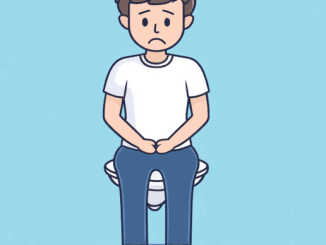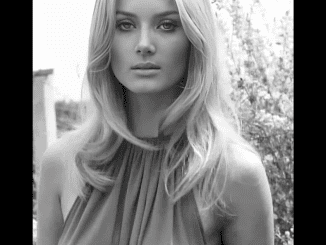The 2024 Paris Olympics have been rocked by a heated controversy surrounding the participation of two female boxers – Lin Yuting from Taiwan and Imane Khelif from Algeria. These athletes were previously disqualified from the world championships by the International Boxing Association (IBA) for failing gender eligibility tests, but the International Olympic Committee (IOC) has decided to allow them to compete in the upcoming games.

This decision has sparked a fierce backlash, with renowned author J.K. Rowling leading the charge against the IOC’s ruling. Rowling, known for her staunch anti-transgender views, has taken to social media to voice her concerns, questioning whether allowing these athletes to compete could lead to “life-threatening injuries” or even fatalities for their cisgender opponents.
Lin Yuting and Imane Khelif were both disqualified from the world championships last year by the IBA after failing gender eligibility tests. The tests revealed that both athletes possessed XY chromosomes, which are typically associated with male individuals. As a result, Yuting was stripped of her bronze medal, while Khelif was banned just hours before a gold medal match.
However, the IOC has chosen to ignore the IBA’s ruling and has defended its decision to allow Yuting and Khelif to compete in the Paris 2024 games. In a statement, the IOC stated that it used regulations from previous games to influence its decision-making and that all athletes have fulfilled eligibility and entry regulations, as well as medical regulations.
J.K. Rowling, the renowned author of the Harry Potter series, has been at the forefront of the criticism against the IOC’s decision. Rowling took to X, formerly known as Twitter, to express her concerns, questioning whether the inclusion of Yuting and Khelif could lead to “life-threatening injuries” or even fatalities for their cisgender opponents.
Rowling’s views on transgender rights have long been a source of controversy, and her stance on this issue has further strained her relationships with some of the actors who starred in the Harry Potter film adaptations, such as Daniel Radcliffe and Emma Watson, who have both spoken out against her position on gender identity.
Australian boxer Caitlin Parker has also voiced her disagreement with the IOC’s decision, calling it “incredibly dangerous” and stating that while she has sparred with men before, the inclusion of Yuting and Khelif in the women’s competition should be “seriously looked into.”

The controversy surrounding their participation has taken an emotional toll on the athletes themselves. According to Yuting’s coach, Tseng Tzuchiang, the athlete “lost it” after reading the insults directed at her on social media.
“I told her: if you trust me, give me your mobile phone, say nothing to them, and get some sleep. I will tackle this for you, and with you,” said the coach, highlighting the significant personal impact this issue has had on the athletes caught in the crossfire.
The debate surrounding the participation of transgender athletes in sports is far from over, and the IOC’s decision to allow Yuting and Khelif to compete in the Paris 2024 games has only served to reignite the discussion.
As the world watches this unfolding controversy, it’s clear that the issue of gender eligibility in sports is a complex and highly contentious one, with valid arguments and concerns on both sides. The outcomes of this debate could have far-reaching implications for the future of transgender participation in athletic competitions, and it will be crucial for the IOC and other governing bodies to navigate this landscape with sensitivity, fairness, and a deep understanding of the nuances involved.
The controversy surrounding the participation of Lin Yuting and Imane Khelif in the 2024 Paris Olympics has thrust the issue of transgender athletes into the global spotlight. With J.K. Rowling and others voicing strong opposition to the IOC’s decision, the debate is far from over, and the outcomes could have significant implications for the future of transgender participation in sports.
As the world watches this unfolding saga, it’s clear that finding the right balance between fairness, inclusion, and athlete safety is no easy task. The IOC and other governing bodies will need to approach this issue with a deep understanding of the complexities involved, guided by principles of equity, science, and a genuine commitment to the well-being of all athletes.


